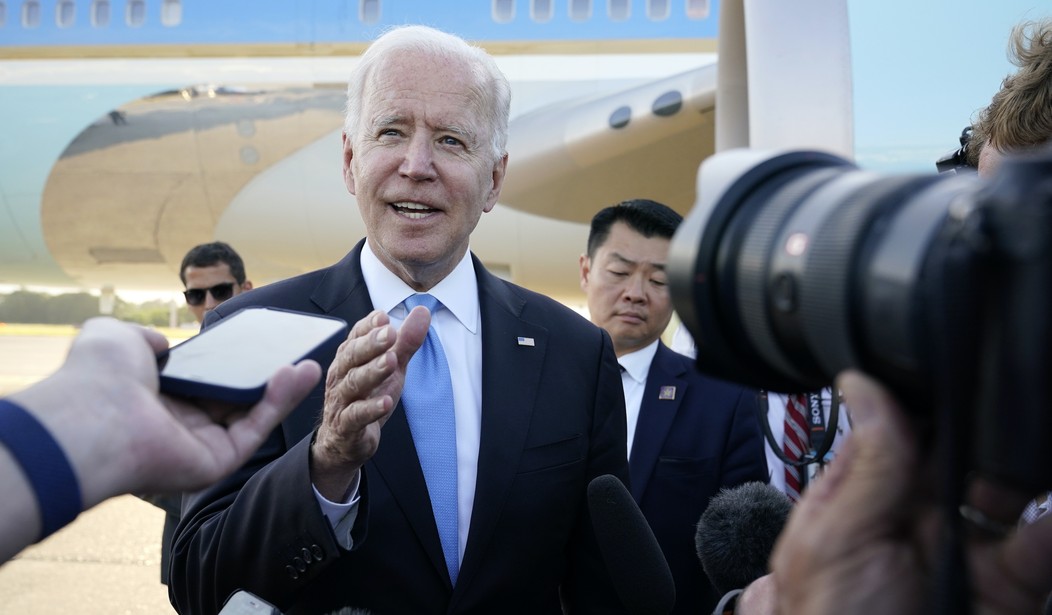While left wing staffers in the Biden Administration’s State Department are “concerned” that the death cult Taliban has an all-male government, moderate Democrats are (finally) beginning to push back on the insanity of the so-called progressive left. Indeed, when these same woke Administration staff requested, as part of the defense budget a weak, flaccid military spending line item, moderate Congressional Democrats pushed to expand that budget by $24 billion more.
But budget realities still need to be observed, and while we need to keep the military strong, we need to find efficiencies while doing so. The Air Force has the opportunity now to cut corners without sacrificing quality.
The Pentagon is choosing which refueling tanker to anoint for supporting the next generation of US military aircraft. They have a choice between the Boeing KC-46 Pegasus and Airbus’s multirole tanker transport based on its A330 jetliner, and the choice should be pretty clear. Top to bottom, the Pegasus beats the A330.
Regarding size, the Airbus tanker is 40 percent heavier than the Pegasus, takes up nearly 50 percent more space on the ground, and has a larger, more awkward turning radius. That sounds like might be advantageous in terms of total fuel volume, but missions in volatile, kinetic environments frequently prioritize agility over volume. Not all Air Force tanking missions are performed on landing strips at Dallas-Fort Worth airport. In the Pacific, for example, air bases operate in severely constrained environments, so a bigger plane means fewer tankers on the ramp, less room for fighters and bombers, and more time lost during refueling.
Recommended
Bigger also means the fuel tanker requires…more fuel.
Furthermore, the Air Force is already using the Pegasus, and splitting a fleet of craft causes logistical problems. Fleet diversity causes challenges. After deciding which plane should be the bridge tanker, procurement officials will have to plan for new training programs for pilots and support crew, unique stores of spare parts, variable hanger construction, and so on. Economies of scale are also lost under diversification, so each tail will cost more.
The Air Force has repeatedly stated that it must reduce the number of aircraft types in its fleet to save money, and here’s the chance to do that.
Moreover, the Air Force already rejected Airbus as a provider of refueling tankers 10 years ago. If the Air Force were to hold a competition for the next lot of tankers, there’s no indication Airbus would have improved in that time, especially as capability upgrades would be unavoidable. While the Pegasus is built on a dedicated assembly line, whereas the Airbus tanker is built on a commercial assembly line and then modified at a different location – not the kind of military efficiency that the US Air Force needs to maintain air superiority.
The Pegasus comes fully loaded with flight deck armor and hardening against the EMP generated by nuclear weapons. Getting Airbus craft up to that standard will generate unusual engineering challenges. Because of this, the Airbus tanker is not certified by civil aviation authorities to the standard required by the Air Force. It would still need to go through a lengthy approval process by the Federal Aviation Administration that the Boeing craft doesn’t.
Furthermore, the fact that Airbus is a French company certainly shouldn’t eliminate it from consideration, but the fact that Boeing is an American company should give it priority. Airbus is trying to play three-card monte with the political system by sending tankers to a US based manufacturing plant, but US taxpayer dollars should not be outsourced to a French aerospace manufacturer for military aircraft when a comparable (or in this case superior) domestic alternative is available. Airbus surpassed Boeing in 2019 as the No. 1 airline manufacturer in the world, so they’ll be just fine if they lose a contract or two.
The Airbus tanker has all the signs of a budget-buster for the Air Force, at a time when maintaining technological superiority is critical for the stability of the planet. There may be members of Congress from Alabama pushing for it, because of Airbus’s presence in the state, but the Pentagon needs to politely decline. Bigger isn’t always better, and in this case it is worse, and needlessly bigger budgets are never, ever better.
Jared Whitley is a longtime DC politico, having worked in the US Senate, the Bush White House, and the defense industry. He got his MBA from Hult International Business School in Dubai.

























Join the conversation as a VIP Member